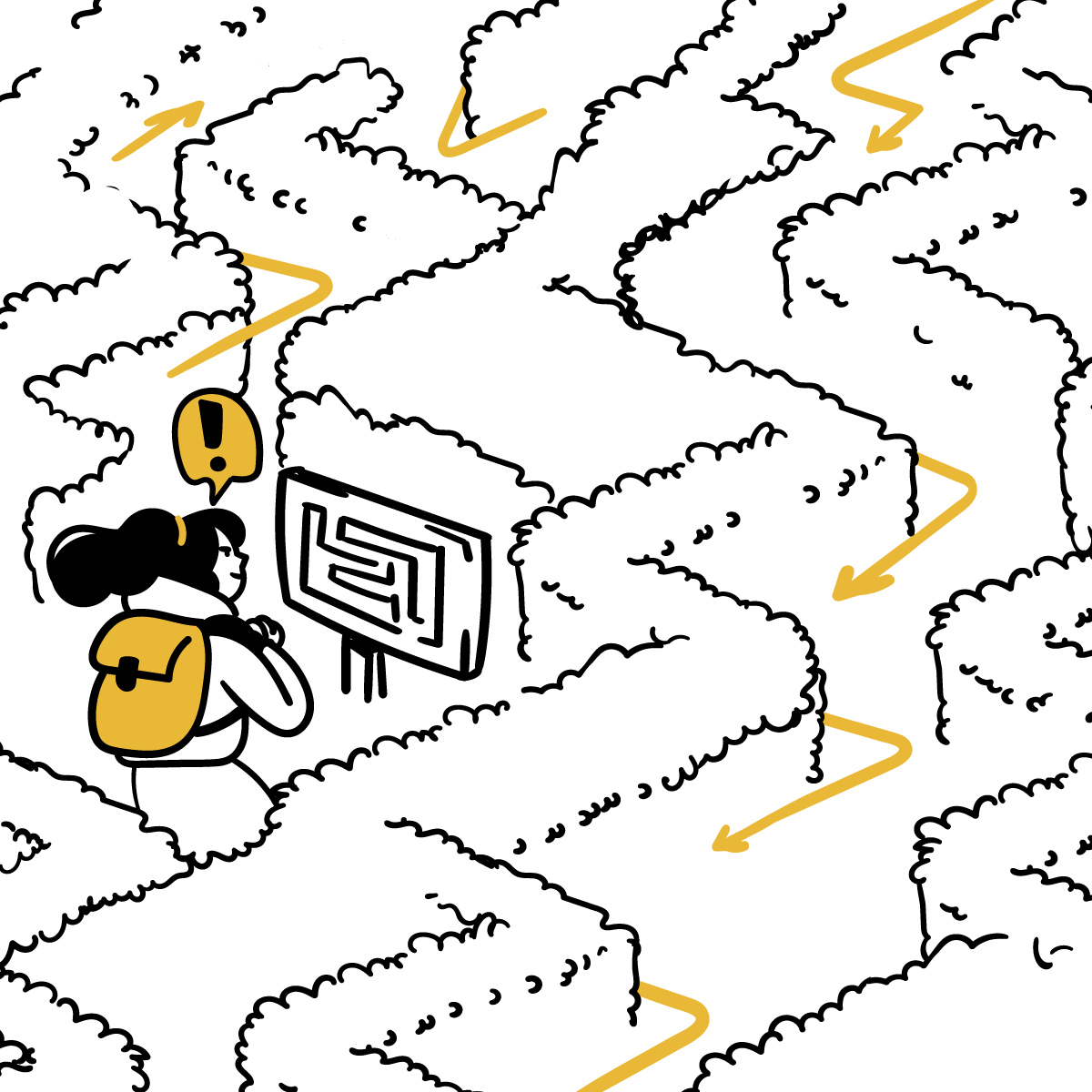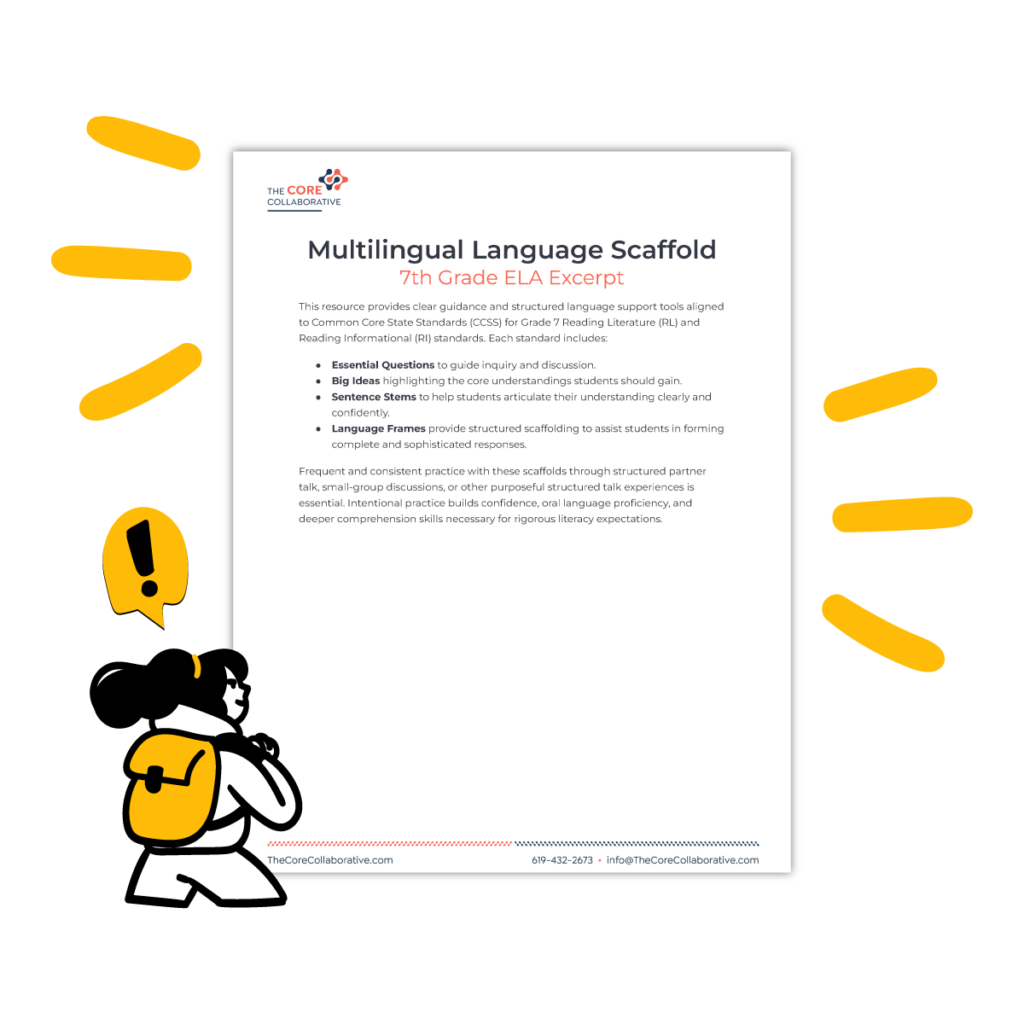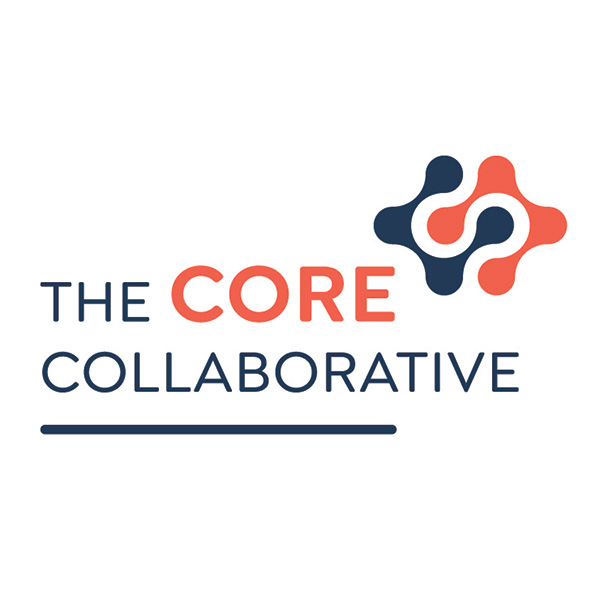 As educators, we’ve all felt the tug-of-war between wanting to deeply understand our students’ learning and the pressure to “cover” content through assessments that often fall short. What if we reframed assessment—not as a gatekeeper of grades, but as a mirror for growth?
As educators, we’ve all felt the tug-of-war between wanting to deeply understand our students’ learning and the pressure to “cover” content through assessments that often fall short. What if we reframed assessment—not as a gatekeeper of grades, but as a mirror for growth?
That’s the driving force behind the 7th Grade Mastery Assessment Toolkit.
At its core, this toolkit is more than a collection of assessments. It’s a student-centered, equity-driven resource that aligns to high-leverage, priority ELA standards. Think of it not as a testing tool, but as a teaching companion—helping students make learning visible, and empowering educators to guide them through that process.
What Makes a Mastery Assessment Different?
In a landscape saturated with test prep and multiple-choice reviews, mastery assessments demand more. They ask students to think critically, apply knowledge authentically, and reflect deeply.
Each task in the toolkit includes:
- Clearly defined success criteria
- A pre- and post-assessment structure to mirror growth
- Stoplight self-assessments for real-time student reflection
- Formative feedback loops that move learning forward
Formative assessments aren’t endpoints—they’re waypoints. For example, when assessing rigorous state standards like CCSS RL.7.2 and RL.7.3, students don’t just demonstrate what they’ve learned—they chart how they got there. That journey is made visible through intentional self-assessment, reflection, and actionable feedback.
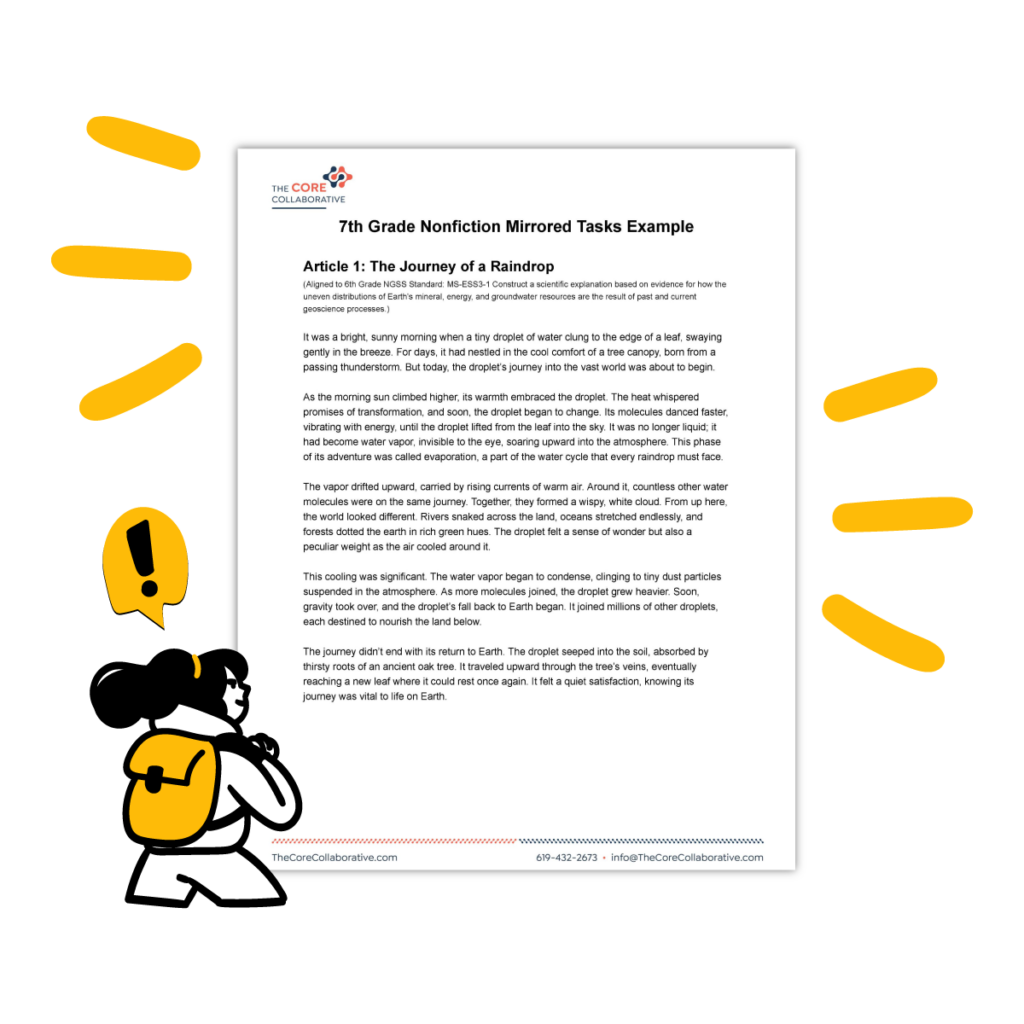 The Magic of Mirrored Mastery
The Magic of Mirrored Mastery
Each task is mirrored—designed to be used as both a pre- and post-assessment. Why? Because this approach doesn’t just measure growth—it celebrates it. Students begin to understand that learning isn’t fixed. It’s a path.
The mirrored design:
- Includes parallel questions and text elements for consistency
- Supports instructional planning through an MTSS lens
- Allows educators to pinpoint next steps for Tier 1, 2, or 3 instruction
- Builds student agency by making growth transparent and trackable
Even better? The consistent success criteria across tasks support vertical alignment across grade levels, making the toolkit a powerful part of a broader Mastery Assessment Suite. See for yourself how these examples of mirrored tasks for 7th grade informational standards.
Language Matters: Scaffolded Support for Multilingual Learners
To ensure every student has access to rigorous learning, the toolkit includes a Multilingual Language Scaffold that aligns directly with Common Core State Standards for both Reading Literature (RL) and Reading Informational (RI).
Each standard includes:
- Essential Questions to guide inquiry
- Big Ideas to focus instruction
- Sentence Stems and Language Frames to build academic language
- Differentiated language supports from Entering to Reaching levels
Whether a student is citing textual evidence (RL.7.1/RI.7.1), analyzing theme development (RL.7.2), or identifying an author’s purpose (RI.7.6), they are supported with structured scaffolds that help them express complex thinking in clear, confident ways.
And these tools aren’t just for isolated use. The toolkit encourages frequent, intentional practice through structured partner talk, small group discussion, and collaborative routines—building oral language fluency, comprehension, and classroom belonging.
Check out this 7th grade language scaffold example.
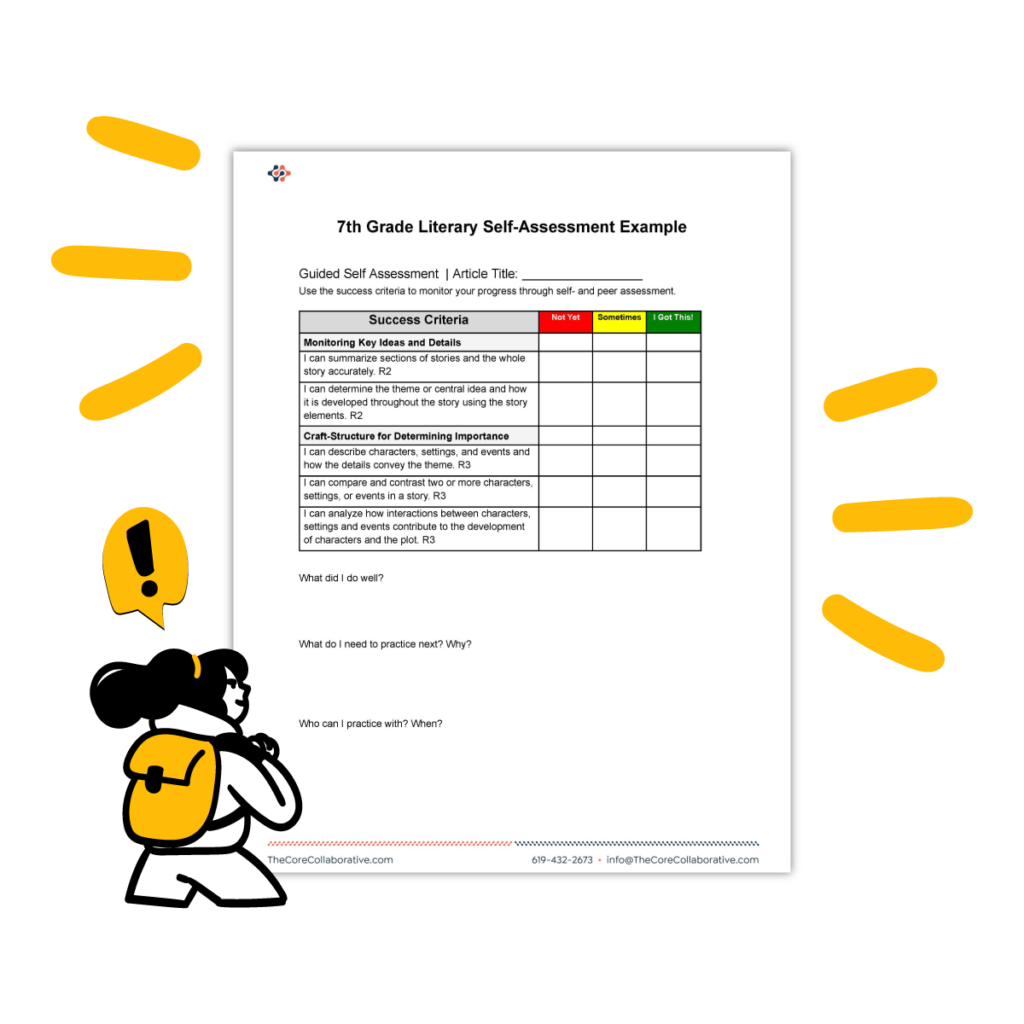 Fostering Student Agency Through Self-Assessment
Fostering Student Agency Through Self-Assessment
Research shows that students who can accurately assess their own learning are more likely to engage, persist, and succeed. That’s why every article and literary task ends with a guided self-assessment designed to promote metacognition and collaboration.
Prompts like:
- What do I need to practice next?
- Who can I practice with?
- How did my thinking grow from the first task to the second?
These prompts, as seen in these 7th grade self-assessment examples, help students take ownership of their learning and see themselves as capable, growing readers and thinkers.
Why This Matters Now
We’ve all felt the disconnect between testing and teaching. The 7th Grade Mastery Assessment Toolkit is about closing that gap—making assessments meaningful, instructional, and empowering.
This is for teachers who want:
- Tools that align to the standards that matter most
- Embedded language support that lifts every learner
- A structure that makes growth visible
- Resources that center student voice and agency
Turn assessment into a tool for equity and engagement—get the toolkit! Email info@mimitoddpress.com to start.


